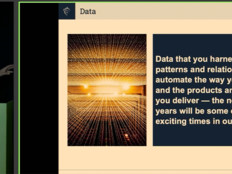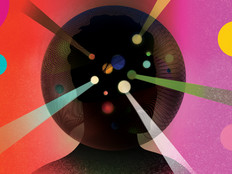Dispelling a Few Myths About Big Data
According to many in the technology press, there’s a new sheriff in town, and his name is Big Data.
The transformational powers ascribed to Big Data range from the vast — “10 ways big data changes everything,” reads a headline from GigaOM — to the small scale — a recent Mashable story touts Big Data’s ability to keep your dog healthy.
According to a report from IDC and sponsored by EMC, digital data is outpacing Moore’s Law and doubling every two years, but how much data you have isn’t as important as what you do with it.
“Data, big, medium or small, has no value in and of itself. The value of data is unlocked through context and presentation,” noted venture capitalist Bryce on his blog over a year ago.
Hoping to deflate some of the air in the Big Data bubble, The New York Times’ Quentin Hardy reports on Microsoft Researcher Kate Crawford’s six myths of Big Data fundamentalism.
Myth 1: Big Data Is New
Papers as far back as 1997 spoke about the challenge of visualizing ever-growing data sets. Crawford admits that Big Data isn’t entirely new, but “it’s reaching us in new ways.”
Myth 2: Big Data Is Objective
Crawford points out that while Hurricane Sandy generated more than 20 million tweets, Twitter’s users “tend to be younger, more urban and more affluent than the norm.” It’s important to remember that only 16 percent of the American population is on Twitter. So tweets might produce a lot of data, but it’s not entirely representative or contextualized information.
Myth 3: Big Data Doesn’t Discriminate
Most people believe that data is a neutral third party that doesn’t subscribe to the prejudices of human beings. But Crawford says, “Data is something we create, but it’s also something we imagine.” That means data can be as influenced as the people creating it.
Myth 4: Big Data Makes Cities Smart
While more information has the power to drive new innovation, data alone can’t turn a city into the Land of Oz. “It’s only as good as the people using it,” Crawford says.
Myth 5: Big Data Is Anonymous
As long as names and pictures aren’t attached, many assume that data can safely be classified as anonymous. But a study last year found “four data points of when and where a call was made could identify 95 percent of individuals,” according to the Times article.
Myth 6: You Can Opt Out
Sometimes you don’t choose Big Data, it chooses you. This is particularly true with free consumer services in which you, the user, are the product. Crawford uses Instagram’s terms of service switcheroo as an example of this.
While it’s fun to hop on the Big Data train, it’s worthwhile to stop and put our feet on the ground every now and again. Big Data is a game-changer in so many ways, but it’s certainly not a magic pill for everything.







